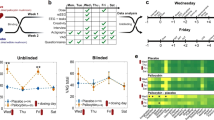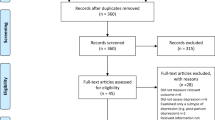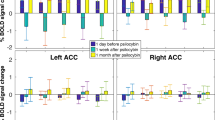Abstract
The long alleles (≥6 repeats) of the dopamine D4 dopamine receptor exon III polymorphism have been linked in some, but not all, studies to Novelty Seeking (NS), one of four personality traits defined by Cloninger's tridimensional personality questionnarie (TPQ). In order to further examine the robustness of our original observation we have recruited an additional cohort similar in demographic structure to the original cohort. Although no significant difference in mean NS scores was observed when the new subjects (n = 94) were grouped by presence (NS = 17.83 ± 1.16) or absence (NS = 16.45 ± 0.65) of the 7 repeat allele, a significant difference in range of NS scores was observed (non-parametric Moses range test, P = 0.01). The effect of the seven allele was also significant in those individuals scoring highest on NS (>1 standard deviation from the mean; t-test, t = 5.13, P = 0.002). In the expanded cohort (n = 218) a significant effect of the seven allele on NS is demonstrated by both parametric (t = 2.26, P = 0.01) and non-parametric (range test, P = 0.004) statistical tests. The effect is also observed in both principal ethnic groups (Ashkenazi and non-Ashkenazi Jews). In the expanded cohort the effect is significant in female (t = 2.2, P = 0.03, n = 98) but not in male subjects (t = 1.12, P > 0.1, n = 116). We discuss both direct and indirect evidence that in our opinion continues to support a modest role for the long alleles of the dopamine D4 receptor repeat polymorphism in the determination of NS behavior at least in some population groups.
This is a preview of subscription content, access via your institution
Access options
Subscribe to this journal
Receive 12 print issues and online access
$259.00 per year
only $21.58 per issue
Buy this article
- Purchase on Springer Link
- Instant access to full article PDF
Prices may be subject to local taxes which are calculated during checkout
Similar content being viewed by others
Author information
Authors and Affiliations
Rights and permissions
About this article
Cite this article
Ebstein, R., Nemanov, L., Klotz, I. et al. Additional evidence for an association between the dopamine D4 receptor (D4DR) exon III repeat polymorphism and the human personality trait of Novelty Seeking. Mol Psychiatry 2, 472–477 (1997). https://doi.org/10.1038/sj.mp.4000333
Received:
Revised:
Accepted:
Issue Date:
DOI: https://doi.org/10.1038/sj.mp.4000333
Keywords
This article is cited by
-
Genetics of impulse control disorders in Parkinson’s disease
Journal of Neural Transmission (2013)
-
No Association of a Casein Kinase 1ε (CK1ε) Gene Polymorphism with Personality Traits in Healthy Chinese-Han Subjects
Journal of Molecular Neuroscience (2012)
-
Gene-Environment Contributions to Young Adult Sexual Partnering
Archives of Sexual Behavior (2007)
-
Does measurement instrument moderate the association between the serotonin transporter gene and anxiety-related personality traits? A meta-analysis
Molecular Psychiatry (2005)
-
Serotonin transporter promoter polymorphism genotype is associated with temperament, personality traits and illegal drugs use among adolescents
Journal of Neural Transmission (2005)



